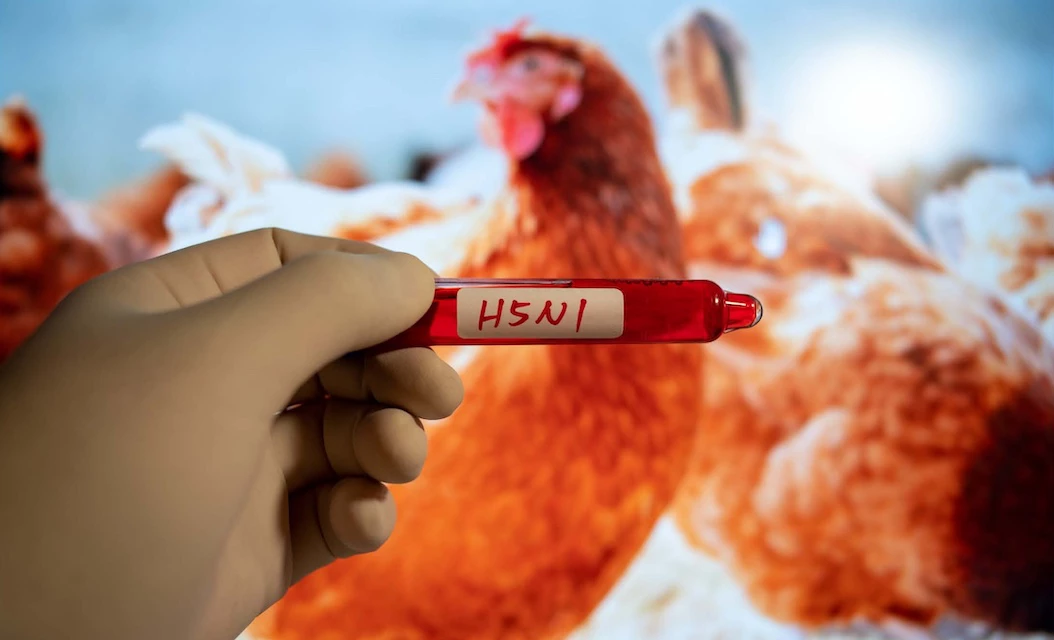Press Release


- For Immediate Release:
- Contact:
- Wayne Pacelle, president
- 202-420-0446
- Email Wayne here
Animal Wellness Groups Call on Lawmakers, Law Enforcement, Judges to Wake Up to Urgent Threats Posed by Rampant Illegal Cockfighting in Kentucky
Cockfighting is a potential superspreader of H5N1
Louisville, KY — Leaders and scientists with Animal Wellness Action, Showing Animals Respect and Kindness (SHARK), and the Center for a Humane Economy called out cockfighting as a “runaway crime” and a “viral superspreader” in Kentucky and said that it poses a direct and documented threat to the state’s $1.7 billion poultry industry. The group’s scientists said that rampant cockfighting and trafficking of fighting birds could spread H5N1 to a number of the state’s 1,000 or so commercial broiler bird and laying-hen farms.
The groups charged that egg prices have risen by about $2 a dozen since the H5N1 outbreak, driven by USDA’s overuse of mass depopulation of commercial poultry, and that’s cost consumers $15 billion in additional outlays for eggs alone. Turkey prices have also surged since the zoonotic disease epidemic.

The animal wellness groups applauded the Kentucky State Police for a Jan. 4 bust of a cockfight that resulted in the arrests of 54 people in Casey County, but said that they know of other pits that continue to operate with impunity. Acting on an animal cruelty complaint, troopers visited the location on Riffe Creek Road and found an active fighting event. The arrested individuals were charged with second-degree animal cruelty.
“Cockfighting is not a petty offense, but a form of organized crime that threatens not only to spread cruelty but also an avian disease that could create chaos for the state’s multi-billion-dollar poultry industry,” said Wayne Pacelle, president of Animal Wellness Action and the Center for a Humane Economy. “H5N1 is also driving higher prices for consumers, collectively costing them $15 billion in higher egg prices alone during the last three years, and cockfighting could extend the reach and virulence of the disease.”
Pacelle called on state lawmakers to pass a bill from State Sen. Greg Elkins, R-Winchester, to make cockfighting a felony. Kentucky is one of a half dozen or so states that treat cockfighting as a misdemeanor. That bill is Senate Bill 39.
“Lawmakers and police, prosecutors, and judges need to understand that cockfighting does not fit into the ‘minor crimes’ category of offenses,” said Steve Hindi, president of SHARK. “These criminal networks are committing a series of serious crimes, to say nothing of the spread of viral diseases that can gut the state’s biggest agricultural industries.”
Dr. Jim Keen, director of veterinary sciences for the Center for a Humane Economy, said that cockfighting traffickers are potential superspreaders of H5N1. Already USDA has directed the killing of nearly 134 million birds in the United States to contain the spread of bird flu.
While acknowledging that control of bird flu H5N1 is challenging, Dr. Jim Keen is critical of the USDA’s focus on poultry depopulation, mainly 100 million laying hens, by swamping the animals with firefighting foam and suffocating them or by using “ventilation shutdown,” where birds are killed by halting air flow into a poultry house and then turning up the heat and introducing carbon dioxide into the atmosphere to asphyxiate or “cook alive” the animals.
He argues not only that the mass killing is demonstrably inhumane, but that it also may be achieving nothing more than a reduction in the U.S. laying hen population, resulting in diminished production, a surge in prices of this food staple of the American diet, and a billion-dollar outlay from taxpayers to indemnify farmers.
A former USDA research scientist and faculty member of the University of Nebraska School of Veterinary Medicine and Biomedical Sciences, Dr. Keen specializes in emerging and zoonotic infectious diseases of farmed animals. He has broad field experience in outbreak investigation and animal disease control including enteric zoonotic bacteria from livestock in the United States, Foot and Mouth Disease in the United Kingdom, and African Swine Fever in the Caucasus, and virulent Newcastle Disease in the United States.
“Crisis response and disease containment are essential features of any response to a zoonotic disease that has spillover potential to humans,” said Colonel Tom Pool, D.V.M, MPH, Dipl. ACVPM, senior veterinarian with Animal Wellness Action and the former leader of the U.S. Army Veterinary Command. “But with the virus thriving on animal-to-animal transmission pathways, it is foolish for the USDA to ignore the 20 million fighting birds being trafficked across the United States and imported and exported to our country. Kentucky is a hot spot for cockfighting and a major poultry producer, and that is a very dangerous combination.”
Dr. Pool added, “Cockfighting birds were responsible for two-thirds of all U.S. outbreaks of virulent Newcastle disease, a dangerous viral poultry disease very similar to bird flu. It is axiomatic that trafficking and smuggling of fighting birds constitute extreme risk for our poultry industry, especially when so many non-nationals working in our poultry houses hail from countries that allow cockfighting.”
Dr. Keen said it is reckless for the USDA not to say a word about the “backyard flocks” it has depopulated, because there are so many reasons people might have birds in their possession. “If we had data from the USDA, we could then light a fire under enforcement officials to address illegal possession and trafficking of fighting birds,” he observed.
“While there’s little we can do to stop wild birds from shedding the virus to hosts along the migratory flyways, there is something we can do about widespread transmission of the virus by cockfighters,” added Dr. Pool. “We can shut down their operations and arrest the people involved, thereby reducing risks to our commercial flocks and other keepers of poultry.”
Dr. Pool earned his Master’s in public health (tropical medicine) degree from Harvard University, and doctor of veterinary medicine degree from Oklahoma State University. Colonel Pool was commander of the U.S. Army Veterinary Command before serving as Territorial Veterinarian for the U.S. Territory of Guam. While serving the Department of Agriculture in Guam, he noted that nearly 12,000 fighting birds were shipped to Guam in a five-year period in violation of federal law. He has authored peer-reviewed publications on leptospirosis and dengue hemorrhagic fever.
Since bird flu was detected in our homeland in February 2022, government authorities, mainly at the USDA, have ordered the killing of 133.9 million poultry on more than 623 commercial poultry farms and 753 “backyard farms” in all 50 states. More than 99 million of the dead are laying hens and 17 million are turkeys, with the shrinkage in the national bird populations so profound that a carton of a dozen eggs costs $9 in some places.
The bird flu virus also mutated, enabling it to spill over to dairy cattle in early 2024. It has so far infected at least 919 dairy herds in 16 states (perhaps a million cows, out of a national population of nine million), causing widespread suffering of the cows. This has also caused widespread bird flu virus contamination of the on-farm and raw milk supply.
Wild animals are also afflicted and dying in unknown numbers. There have been 10,922 fatal detections of the bird flu H5N1 strain in at least 185 wild avian species in all 50 states, mostly waterfowl and birds of prey. Bird flu H5N1 has also killed at least 419 wild carnivores or marine mammals of 25 species. Feral domesticated cats and wild big cats are especially vulnerable, with 20 captive mountain lions, bobcats, and other big cats perishing at the Wild Felid Advocacy Center of Washington. Total wild animal deaths certainly number in the millions.
Center for a Humane Economy is a Washington, D.C.-based 501(c)(3) whose mission is to help animals by helping forge a more humane economic order. The first organization of its kind in the animal protection movement, the Center encourages businesses to honor their social responsibilities in a culture where consumers, investors, and other key stakeholders abhor cruelty and the degradation of the environment and embrace innovation as a means of eliminating both. The Center believes helping animals helps us all. Twitter: @TheHumaneCenter
Animal Wellness Action is a Washington, D.C.-based 501(c)(4) whose mission is to help animals by promoting laws and regulations at federal, state and local levels that forbid cruelty to all animals. The group also works to enforce existing anti-cruelty and wildlife protection laws. Animal Wellness Action believes helping animals helps us all. Twitter: @AWAction_News
SHARK is a national animal-protection organization focused on documenting and exposing cruelty to animals and holding animal-abusers accountable under the law. With hard-hitting tactics and a fearless approach, along with expert use of technology, SHARK works to document human abuses of animals and show them to the world, with the aim of stopping these abuses once and for all.